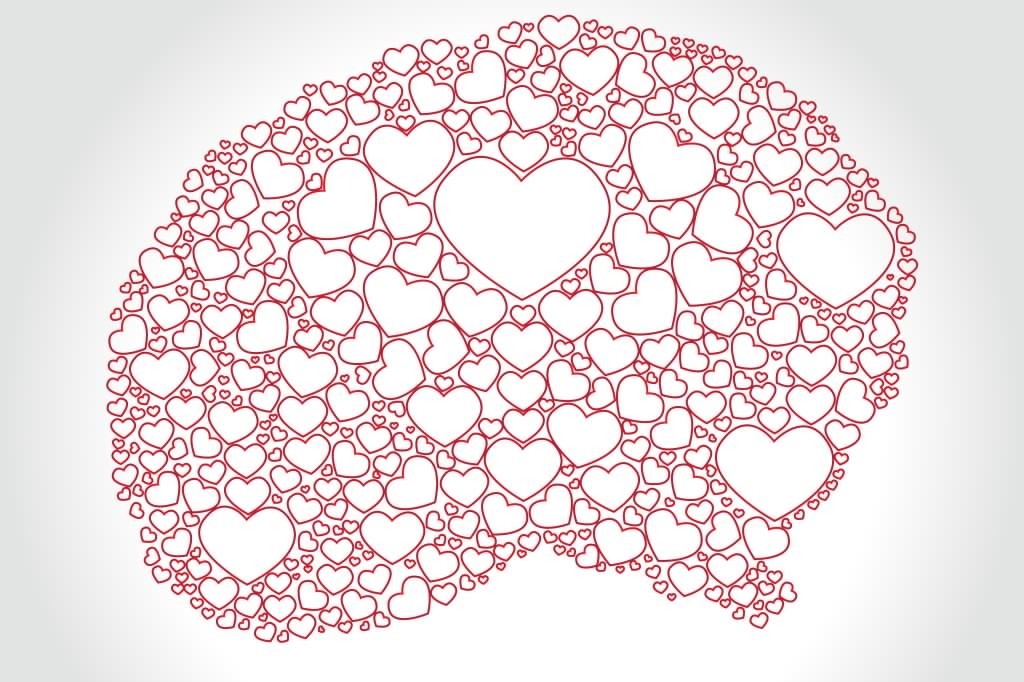
This article was first published on February 13, 2015.
In the brain , romantic love is basically an addition “If the idea is not absurd at first, then there is no hope for it,” said Albert Einstein. I would like to expand the definition of addiction – and also to withdraw the scientific idea that all addictions are pathological and harmful.
Since formal diagnosis began more than fifty years ago, the compulsive pursuit of gambling, food, and sex (known as non-substance rewards) have not been considered addictions. Only the abuse of alcohol, opioids, cocaine, amphetamines, cannabis, heroin and nicotine are officially considered addictions. This categorization is largely based on the fact that substances activate basic “reward pathways” in the brain associated with craving and craving and produce pathological behavior. Psychiatrists work in this world of psychopathology – what is abnormal and makes you sick.
Is love addiction real?
As an anthropologist, I think they are limited by this view. Scientists have already shown that compulsions to food, sex, and gambling use many of the same brain pathways activated by substance abuse. Indeed, the 2013 edition of the Diagnostic and Statistical Manual of Mental Disorders (DSM) finally recognized that at least one form of non-substance abuse—gambling—could be considered an addiction. Abuse of sex and food are not yet included. Nor is there romantic love.
I will suggest that love addiction is just as real as any other addiction in terms of its behavioral patterns and brain mechanisms. Moreover, it is often a positive dependency.
Scholars and laymen alike have long considered romantic love to be part of the supernatural or a social invention of the troubadours of 12th-century France. The evidence does not support these notions. Love songs, poems, short stories, operas, ballets, novels, myths and legends, love magic, love talismans, love suicides and murders—evidence of romantic love has now been found in more than 200 societies dating back thousands of years. All over the world men and women yearn for love, live for love, kill for love and die for love. Human romantic love, also known as passionate love or “falling in love,” is regularly seen as a human universal.
What are the symptoms of love addiction?
In addition, men and women in love exhibit all the major symptoms of addiction.
First of all, the lover is focused on his/her drug, the object of love. The lover thinks obsessively about him or her (obsessive thinking) and often compulsively calls, texts, or keeps in touch. The most important thing in this experience is the strong motivation to win your beloved, not unlike substance abusers fixated on drugs.
Passionate lovers distort reality, change their priorities and daily habits to accommodate the beloved, experience personality changes (affect disturbances), and sometimes do inappropriate or risky things to impress that special other. Many are willing to sacrifice, even die for “him” or “her.”
(Credit: denniro/Shutterstock)
The lover craves emotional and physical union with the beloved (dependency). And like addicts who suffer when they can’t get the drug, the lover suffers when separated from the beloved (separation anxiety). Adversity and social barriers even intensify this yearning (attracting dissatisfaction).
In fact, infatuated lovers express all four basic traits of addiction: craving, tolerance, withdrawal, and relapse. They feel a “rush” of invigoration when they are with their loved one (intoxication). As their tolerance builds, they seek to interact with the loved one more and more (intensification). If the love object ends the relationship, the lover experiences drug withdrawal symptoms, including protest, crying, lethargy, restlessness, insomnia or hypersomnia, loss of appetite or overeating, irritability, and loneliness.
Lovers, like addicts, also often go to extremes, sometimes doing humiliating or physically dangerous things to win back the loved one. And lovers relapse like drug addicts. Long after the relationship has ended, events, people, places, songs, or other external cues associated with the abandonment of the loved one can trigger memories and renewed longing.
Love in the mind
Of the many signs that romantic love is addictive, however, perhaps none is more compelling than the growing evidence from neuroscience. Using fMRI, several scientists have already shown that feelings of intense romantic love engage regions of the brain’s “reward system”: specifically, dopamine pathways associated with energy, focus, motivation, ecstasy, despair, and longing, including primary regions associated with with substance (and non-substance) addictions.
In fact, my colleagues Lucy Brown, Art Aron, and Bianca Acevedo and I found activity in the nucleus accumbens—the main brain factory associated with all addictions—in rejected lovers. Moreover, some of our latest results suggest correlations between nucleus accumbens activities and feelings of romantic love addiction among people who are wildly, happily in love.
Nobel laureate Eric Kandel noted that brain research “will give us new insights into who we are as human beings.” Knowing what we now know about the brain, my brain scanning partner Lucy Brown hypothesized that romantic love is a natural addiction, and I argue that this natural addiction evolved from mammalian ancestors about 4.4 million years ago among our first hominid ancestors. in connection with the evolution of (serial, social) monogamy — a distinctive feature of humanity. Her goal: to motivate our ancestors to focus their mating time and metabolic energy on one partner at a time, thereby initiating the formation of a pair bond to raise their young (at least through infancy) together as a team.
The sooner we embrace what brain science tells us—and use that information to build on the concept of addiction—the better we’ll understand ourselves and the billions of others on this planet who enjoy ecstasy and struggle with the pain of that deeply powerful, natural, often positive addiction: romantic love.
Sample from This idea must die, edited by John Brockman. Used with permission.

